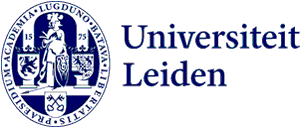
ICC President visits Leiden University: ‘We must work together to fight crime’
The International Criminal Court (ICC) is under intense scrutiny when it comes to prosecuting international crimes. This due to increasing conflicts worldwide. During her visit to Leiden, the President of the Court, Judge Tomoko Akane, said that the Criminal Court will not yield to threats.
Judge Akane said this in the lecture she gave last Friday in the university’s Academy Building, at the invitation of the Asia Centre. At the same time, she highlighted the importance of support from the academic community when it comes to performing the task of criminal prosecution.
A vulnerable position
These are challenging times for the ICC, which was established for the purpose of prosecuting war crimes, genocide and crimes against humanity through a fair trial. There are currently ongoing arrest warrants and pending criminal investigations relating to the wars in Ukraine, Israel and Gaza and the Africa conflicts. That puts the ICC in a vulnerable position, as could be concluded from the speech given by the ICC President, Judge Tomoko Akane.
She says: ‘We all know it’s a critical time for the Court. As the number of cases subject to the Court’s jurisdiction has expanded, the Court is under enormous pressure and is subject to threats and coercive measures from powerful actors.’
Support is essential
The ICC has the authority to issue an international arrest warrant for a country’s highest-ranking officials, such as its president or prime minister. Judge Akane referred to the cooperation of State Parties in performing this task as ‘essential’. She also emphasised the importance of support from legal experts across the globe, academic institutions and non-experts alike: ‘It's very important that our State Parties continue supporting us in order to continue strengthening this system.’
The ties between Leiden and Japan are long and old
Organisations such as Leiden University want to provide their support in the form of academic knowledge and expertise. In her word of welcome to Judge Akane, the President of the Executive Board, Annetje Ottow, stressed that the ICC can rely on Leiden University’s support and collaboration. During her lecture, Judge Akane explained in no uncertain terms that the ICC is determined to uphold international justice in an impartial manner.
Strong ties
Professor of International Public Law Larissa van den Herik addressed Judge Akane on behalf of Leiden Law School’s Grotius Centre. She said: ‘The ties between Leiden and Japan are long and old – both between the Asia Centre, the Grotius Centre for International Legal Studies and Japan.’
Judge Tomoko Akane is Japanese. Before she came to the ICC, she had already had a career as a public prosecutor in Japan and gained experience in the pre-trial stage of criminal proceedings. At the ICC, preliminary investigations form an extremely important part of prosecuting criminals.
Experts by Royal Appointment
The Grotius Centre is one of the main suppliers of legal experts who can then be appointed by the ICC, which is in need of new generations of lawyers. The ICC invests in these lawyers in the form of internships, visits from field professionals and collaborations with universities such as Leiden University (through the Leiden Asia Centre and the Grotius Centre). These collaborations enhance the future of the ICC.
The ICC is also a key partner for the Dutch judicial system
Judge Akane: ‘I look forward to constructive criticism, including some recommendations from the academic side. For example, judgments and also reparations, other decisions made by the judges. That would be a kind of promotion of international law. And also, of course, they may support the impartiality and the independence of the Court.’
At present, 124 countries are States Parties to the Rome Statute, on which the International Criminal Court is founded. Professor van den Herik says: ‘The ICC is also a key partner for the Dutch judicial system in trying crimes committed beyond Dutch borders.’
Many achievements
In her speech, Judge Akane reflected on the achievements and obstacles involved in international criminal proceedings. As far as victims are concerned, the Court is the pioneer in granting comprehensive rights to victims, such as the right to reparation. These kinds of rights are considered groundbreaking in legal proceedings and may serve as an example for the national judicial system.
All in all, Judge Akane was positive about all that the Court has managed to achieve since its foundation. She adds: ‘I believe that the ICC has achieved more in its over two decades of existence than many thought possible.’
Text: Jan-Willem Oomen
Photo: Iris Kamphuis
